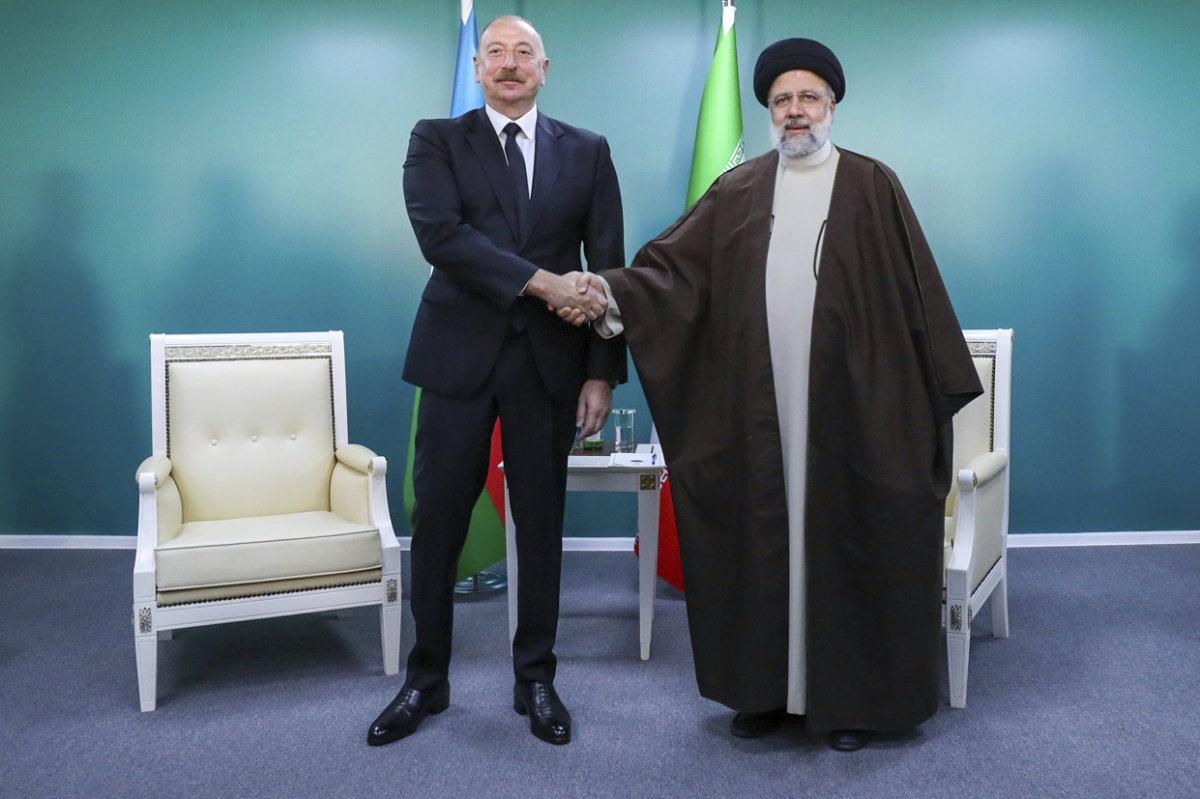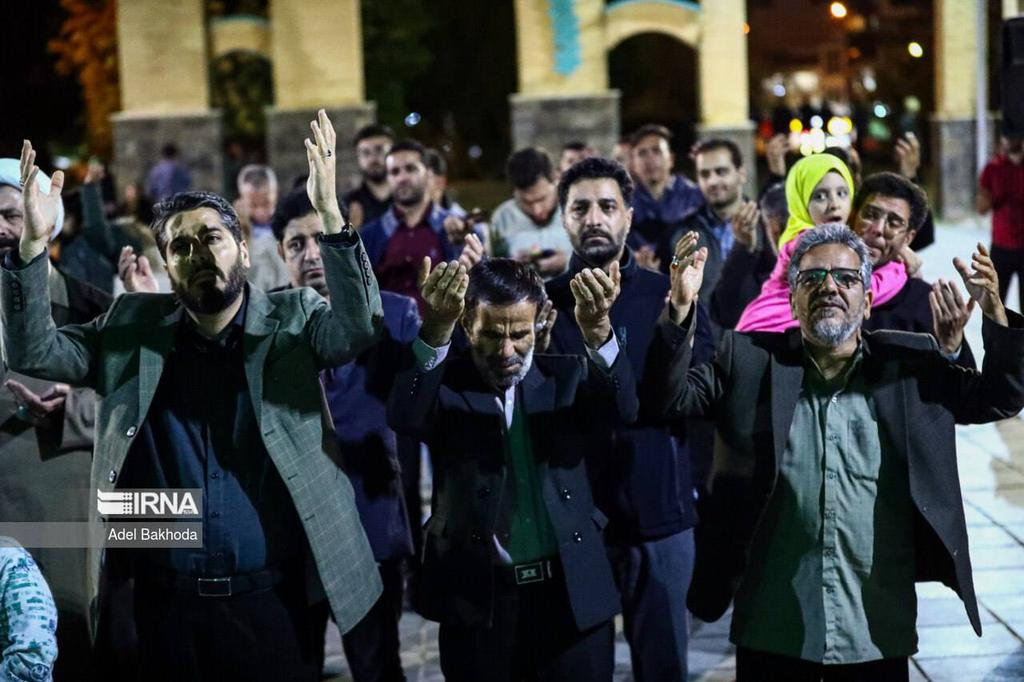GAZA STRIP, Palestinian Territories: Israel bombed southern Gaza’s main city on Monday after Hamas warned no Israeli hostages would leave the territory alive unless its demands for prisoner releases were met.
Hamas triggered the conflict when it carried out the deadliest-ever attack on Israel on October 7, killing 1,200 people, according to Israeli figures, and taking about 240 hostages back to Gaza.
Israel has responded with a military offensive that has reduced much of Gaza to rubble and killed at least 17,997 people, mostly women and children, according to the Hamas-run health ministry.
The ministry said on Monday that dozens of people had been killed in Israeli strikes across the Gaza Strip, while Israel’s army reported rocket fire from Gaza into Israel.
An AFP correspondent reported that Israeli strikes on Monday hit the main southern city of Khan Yunis, while Palestinian militants Islamic Jihad said they had blown up a house where Israeli soldiers were searching for a tunnel shaft.
Hamas on Sunday warned that Israel would not receive “their prisoners alive without an exchange and negotiation and meeting the demands of the resistance.”
Israel says there are still 137 hostages in Gaza, while activists say around 7,000 Palestinians are in Israeli jails.
Months of intense bombardment and clashes have left Gaza’s health system on the brink of collapse, with most hospitals no longer functioning and nearly two million people displaced.
AFP visited the bombed-out ruins of the Al-Shifa hospital in Gaza City and found at least 30,000 people taking refuge amid the rubble after Israeli forces raided the medical facility last month.
“Our life has become a living hell, there’s no electricity, no water, no flour, no bread, no medicine for the children who are all sick,” said Mohammed Daloul, 38, who fled there with his wife and three children.
No safe place
The UN estimates 1.9 million of Gaza’s 2.4 million people have been displaced from their homes — roughly half of them children.
Israel had urged people to seek refuge in the south, but after expanding the war to include southern targets, there are few safe places for civilians to go.
Humanitarian organizations continued to press Israel for greater protection of civilians in the conflict.
Mapping software deployed by Israel’s army to try to reduce non-combatant deaths was condemned as inadequate Sunday by Lynn Hastings, UN humanitarian coordinator for the Palestinian territories.
“A unilateral declaration by an occupying power that patches of land where there is no infrastructure, food, water, health care, or hygiene are ‘safe zones’ does not mean they are safe,” she said.
Only 14 of Gaza’s 36 hospitals are functioning at any capacity, according to the United Nations’ humanitarian agency OCHA.
“Gaza’s health system is on its knees and collapsing,” said World Health Organization chief Tedros Adhanom Ghebreyesus, as the agency called for immediate, unimpeded aid deliveries.
Israel’s army chief Herzi Halevi said Sunday his troops were using “significant force” in Gaza, hailing “significant achievements” in the war.
The army told AFP on Monday that 101 soldiers have died in the Gaza ground offensive, and previously put the number of wounded at around 600.
It said Sunday it had struck more than 250 targets in 24 hours, including “a Hamas military communications site,” “underground tunnel shafts” in southern Gaza, and a Hamas military command center in Shejaiya in Gaza City.
Some 7,000 “terrorists” have been killed, according to National Security Adviser Tzachi Hanegbi.
“Hamas should not exist, because they are not human beings, after what I saw they did,” Menahem, a 22-year-old soldier wounded on October 7, told AFP during a military-organized tour that did not allow him to give his surname.
UN to demand ceasefire
The UN General Assembly will meet on Tuesday to discuss the situation in Gaza, its president said, after the United States vetoed a Security Council resolution for a ceasefire on Friday.
A draft of the text seen by AFP closely follows the language of Friday’s failed Security Council resolution, “expressing grave concern over the catastrophic humanitarian situation in the Gaza Strip.”
UN Secretary-General Antonio Guterres told a leaders’ gathering in Qatar on Sunday that the Security Council’s “authority and credibility were severely undermined” by the US veto.
Qatar, where Hamas’s top leadership is based, said it was still working on a new truce like the week-long ceasefire it helped mediate last month that saw 80 Israeli hostages exchanged for 240 Palestinian prisoners and humanitarian aid.
But Israel’s relentless bombardment was “narrowing the window” for success, said Qatari Prime Minister Sheikh Mohammed bin Abdulrahman Al Thani.
US Secretary of State Antony Blinken on Sunday again rejected a ceasefire.
“With Hamas still alive, still intact and... with the stated intent of repeating October 7 again and again and again, that would simply perpetuate the problem,” he told ABC News.
But Blinken also said the United States was “deeply, deeply aware of the terrible human toll that this conflict is taking on innocent men, women and children.”
There are fears of regional escalation with frequent cross-border exchanges between Israel and Lebanese militants, and attacks by pro-Iran groups against US and allied forces in Iraq and Syria.
Syria’s state news agency said Israel had carried out strikes near Damascus late Sunday, but air defense systems had prevented any significant damage.
The Syrian Observatory for Human Rights war monitor said the strikes had targeted Hezbollah sites in the Sayeda Zeinab district and near Damascus airport.
Meanwhile, Yemen’s Iran-backed Houthi rebels threatened to attack any vessels heading to Israel unless more aid was allowed into Gaza.
France said Sunday one of its frigates in the Red Sea had shot down two drones launched from Yemen.





























